Financial literacy is an invaluable skill that everyone, particularly students, should acquire early in life. It empowers individuals to make informed financial decisions, save for the future, and avoid common financial pitfalls.
Financial literacy is more than just a buzzword; it's about understanding the intricacies of managing money, making prudent choices, and safeguarding our economic well-being. For students, in particular, who stand on the threshold of financial independence, the significance of financial literacy cannot be overstated. It empowers them to make informed decisions about student loans, manage their expenses, and navigate the maze of financial complexities they'll encounter in the adult world.
To embark on this journey towards financial literacy, it's essential to start with the right questions. Here, we present 10 key financial literacy questions that students should consider. These questions will serve as the stepping stones to a future where financial independence, security, and prosperity are not mere aspirations but tangible realities.

1. What is Financial Literacy?
Before diving into the specifics, it's crucial to grasp the concept of financial literacy. Financial literacy is the ability to understand and manage various aspects of personal finance, including budgeting, saving, investing, and making informed decisions about money. It's about gaining the knowledge and skills needed to navigate the financial complexities of daily life.
Financial literacy isn't a one-off accomplishment; it's an ongoing journey of learning and growth. The financial landscape evolves constantly, with new products, regulations, and economic trends shaping the way we manage our money. Being financially literate means adapting to these changes, staying informed, and adjusting our financial strategies as needed.

2. Why Does Financial Literacy Matter for Students?
Financial literacy holds exceptional significance for students. It equips them with essential life skills, enabling them to make well-informed financial decisions and effectively manage their money throughout their lives. It also influences career decisions, empowers students to consider the financial implications of different career choices, and ultimately contributes to their economic well-being.
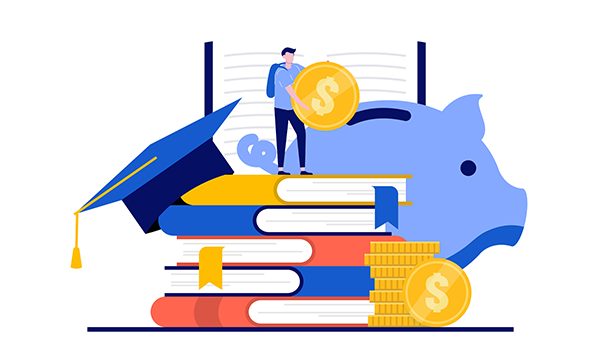
3. How Can I Minimize the Long-Term Impact of Student Loans on My Financial Future?
It's essential to research and apply for scholarships, grants, and work-study opportunities to reduce the need for loans. Careful financial planning, including setting a budget and exploring part-time work or internships, can also help students manage their finances while in school.
Once you've graduated, consider income-driven repayment plans that tie your loan payments to your income, making them more manageable. Loan consolidation and refinancing can be options to explore, but keep in mind that these can have both advantages and disadvantages, so it's vital to research the terms carefully. To further minimize the long-term impact of student loans, consider directing extra money such as bonuses towards loan payments and making additional payments when possible.
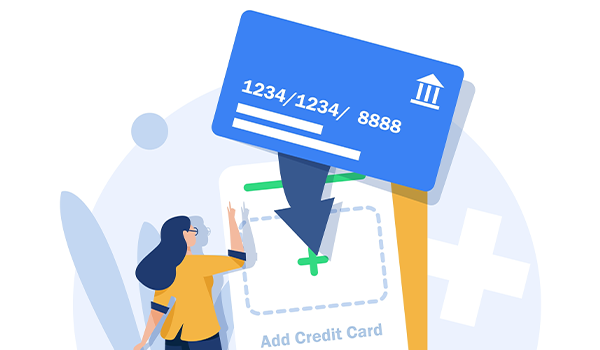
4. How Can I Maximize the Benefits of Credit Cards While Avoiding Debt and High-Interest Charges?
Achieving this is a delicate financial balance that students should strive for. To do so, it's crucial to use credit cards responsibly. One of the most effective strategies is to pay your credit card balance in full each month. By doing this, you prevent accruing interest on your purchases and maintain a positive credit history. A well-structured budget plays a fundamental role in managing credit cards. It helps allocate funds for debt repayment, cover essential living expenses, and still allow room for savings goals. Monitoring your spending closely is also critical. Many credit card companies provide online tools and apps for real-time transaction tracking, aiding you in staying within your budget.
Understanding your credit card's rewards program is equally important. Recognize how it operates, whether it offers cashback or other benefits, and make the most of these rewards for everyday expenses. Regular, timely payments are another essential component of responsible credit card usage. Missing due dates can lead to late fees and negatively affect your credit score.
Avoiding cash advances, which often come with high fees and immediate interest charges, is advisable. Keeping credit utilization low, ideally below 30% of your credit limit, can positively impact your credit score. Negotiating for lower interest rates if you carry a balance is another strategy to consider, as lower rates reduce the cost of carrying a balance.
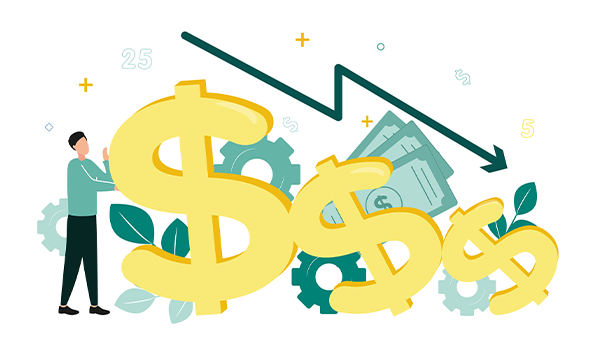
5. How Do I Manage Debt Effectively?
Managing debt involves paying bills on time, avoiding high-interest debt, and setting a clear debt-reduction strategy. Prioritizing debt with high-interest rates is essential. It is a critical component of maintaining financial stability and working towards your long-term financial objectives.
To do this, start by assessing your current debt situation. Create a detailed list of your debts, including the type of debt, outstanding balance, interest rate, and minimum monthly payments. Once you have a clear picture of your debts, prioritize high-interest debt for repayment. This typically includes credit card balances and loans with high-interest rates. Concentrating on these high-cost debts first can help reduce the overall interest you'll pay.
A well-structured budget is another fundamental element of debt management. Your budget should encompass all your financial obligations, ensuring you allocate funds for debt repayment while covering necessary living expenses and savings goals. By adhering to a budget, you can avoid accruing additional debt and allocate more money to debt reduction.

6. What Are the Financial Implications of Buying a Car?
Buying a car involves a range of financial considerations that extend beyond the initial purchase price. The upfront costs encompass not only the price of the car but also taxes and registration fees, which can vary depending on the vehicle's make, model, and age. It's crucial to recognize that cars depreciate in value over time, and this depreciation rate can differ significantly between new and used vehicles. Understanding how rapidly your chosen car will lose value is essential for long-term financial planning.
Operating a car also comes with ongoing expenses. These include fuel, insurance, maintenance, and repairs, all of which can fluctuate based on factors like the car's make and model. If you need to finance the purchase, you'll pay interest on the borrowed amount, and this interest rate, the car loan term, and your credit score all influence the total cost of financing.
Car insurance is a necessity, and its cost depends on various factors like your driving history, the type of car, and the coverage you choose. Taxes and registration fees are additional financial implications that can vary based on your location and the car's value. Fuel efficiency is another essential aspect to consider, as it affects your ongoing fuel expenses, and more fuel-efficient cars tend to cost less to operate.
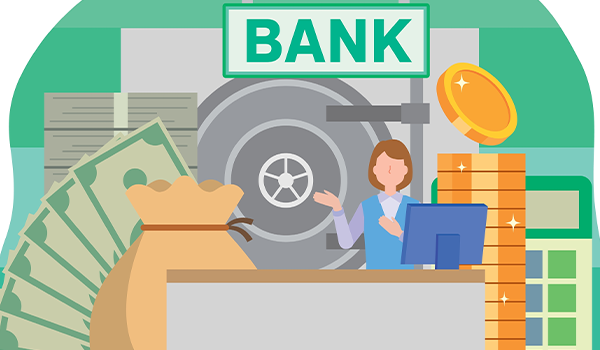
7. How Do Banks Make Money?
Banks make money in several ways, primarily through the interest they charge on loans and the fees they charge for services. When you deposit money in a savings or checking account, the bank uses your funds to provide loans to others, such as mortgages or personal loans, and they charge interest on those loans. The difference between the interest they earn on loans and what they pay you for your deposits is one way banks make a profit. Banks also charge fees for services like ATM usage, overdrafts, and wire transfers, which contribute to their income.
In contrast, credit unions like Austin Telco FCU operate a bit differently. As member-owned cooperatives, they focus on investing back into their members. This is done through offering higher dividend rates on savings and lower interest rates on loans, directly benefiting their members. Moreover, credit unions often provide a range of tailored products and services, further distinguishing them from traditional banks. Their approach is more about serving members than maximizing profits, which is a fundamental difference from how banks operate.
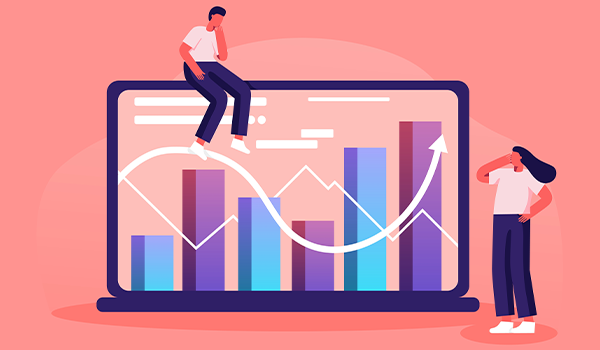
8. How Do Stocks Work?
Stocks represent ownership in a company. When you buy a stock, you become a shareholder, which means you own a piece of that company. Stocks are bought and sold on stock exchanges, like the New York Stock Exchange (NYSE) or NASDAQ. The value of a stock can go up or down based on various factors, including the company's performance, economic conditions, and investor sentiment. Investors often buy stocks with the hope that the stock's value will increase over time, allowing them to sell it at a profit.

9. What Causes Inflation?
Inflation is the gradual increase in the prices of goods and services over time. It can be caused by several factors, including increased demand for products and services, rising production costs (like higher wages or raw materials), or changes in monetary policy by a country's central bank. When the money supply grows faster than the available goods and services, it can lead to inflation. Moderate inflation is considered normal and can indicate a healthy economy, but high inflation can erode the purchasing power of money.
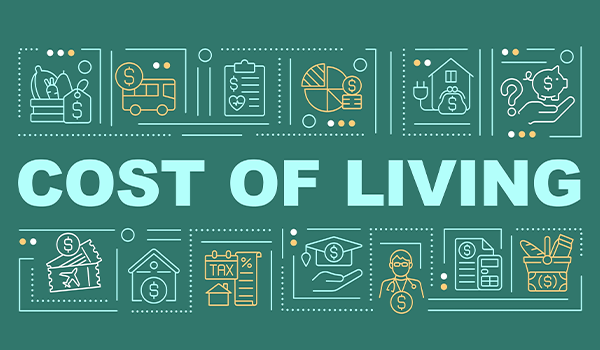
10. How Much Money Can You Live On?
The amount of money you need to live on depends on your lifestyle, location, and financial goals. Basic necessities like housing, food, transportation, and healthcare vary in cost depending on where you live. Creating a budget that covers your essential expenses and provides for your financial goals, such as saving for the future, is essential. It's a personal choice, and it's important to strike a balance between your needs and your financial aspirations. Planning and budgeting can help you determine how much money you need to achieve the lifestyle you want.
Related Resources
- Why is Financial Literacy Important for Students
- How To Teach Youth Financial Literacy
- A Guide to Money Market Accounts
- Student Loan Consolidation and Debt Payoff Calculator
- Youth Summer Savings Tips: Youth Share Certificates
Contact us today for more information on us becoming your credit union or mortgage lender and learn why we are a perfect choice for you.

